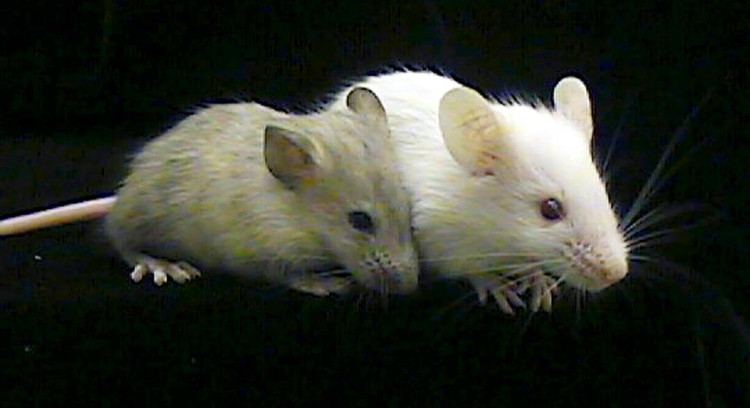Human brain cells are successfully implanted in mice
The team examined the perception of the number of mice carrying human brain cells and had not detected unusual intelligence.
Scientists at the Salk Institute successfully implanted undeveloped brain cells from donor fetuses into the brains of mice, Newsweek reported on April 19. They made a number of changes to bring fluorescence green color and observe the process they developed thanks to the small transparent "windows" on the mouse skull.

Mice carry human brain cells without special intelligence.(Photo: UPI).
Human brain cells exist and develop with mouse brain cells for about 233 days. Even in some areas of the brain, human cells are superior in number."It's a great achievement ," commented Abed AlFattah Mansour, an expert at Salk Research Institute.
Cognitive tests show that the number of mice is not smarter than usual. However, this is still a new study and the team of scientists has not been able to ascertain how human brain cells will affect the perception or behavior of mice.
Scientists hope that research will bring many positive results in the future. For example, they can better understand the development of human brain, help treat patients with brain damage, replace the brain area that is not working or normal development.
- Human brain stem cells
- Successfully implanted retinal stem cells in mice
- Mice carry cells ... human brain!
- Successfully nourish human ears on mice
- Successfully cultivated mini human brains in the laboratory to try medicine
- Shocking facts about the human brain
- Japan successfully implanted liver cells for newborn patients
- Successfully created artificial brain like 99% real brain
- Upgrade the mouse intelligence
- Successfully developed miniature human brains in the laboratory
- Successfully cloned mice from a drop of blood
- Successfully cultured human brain in the laboratory
 Green tea cleans teeth better than mouthwash?
Green tea cleans teeth better than mouthwash? Death kiss: This is why you should not let anyone kiss your baby's lips
Death kiss: This is why you should not let anyone kiss your baby's lips What is salmonellosis?
What is salmonellosis? Caution should be exercised when using aloe vera through eating and drinking
Caution should be exercised when using aloe vera through eating and drinking